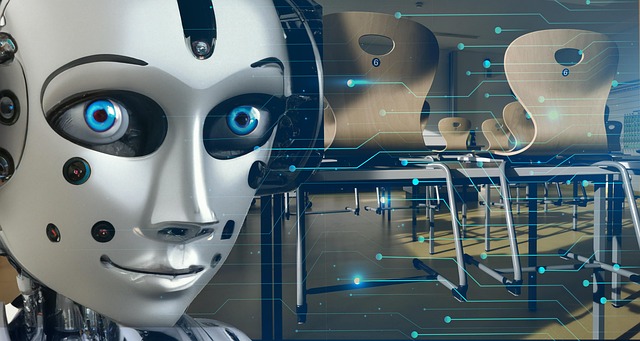# AI Technology: Shaping the Future of Human Interaction and Transforming Everyday Experiences
Artificial Intelligence (AI) has rapidly evolved from a theoretical concept to a transformative force that is reshaping various aspects of human life. As we delve deeper into the 21st century, AI’s influence on human interaction and daily experiences has become increasingly profound. This article explores how AI technology is redefining communication, enhancing personal experiences, and revolutionizing industries.
## Redefining Communication in the Digital Age
Communication has always been the cornerstone of human interaction, and AI is now enhancing this fundamental aspect of our lives. Natural Language Processing (NLP), a subfield of AI, enables machines to understand and generate human language in a way that feels increasingly organic. For instance, AI-powered chatbots are becoming commonplace on websites and social media platforms, providing instant support and information to users. These systems can handle a multitude of queries simultaneously, ensuring that customer service is not only faster but also more efficient.
Moreover, the integration of AI in communication tools is facilitating a more personalized experience. Algorithms analyze user behavior and preferences, allowing platforms like email and messaging apps to prioritize and suggest responses. As a result, individuals can communicate more effectively, focusing on what truly matters rather than sifting through irrelevant information. This personalization extends to social media, where AI curates content tailored to individual interests, fostering deeper connections and engagement.
Additionally, AI is breaking down language barriers, making global communication more accessible. Real-time translation apps utilize AI to translate spoken or written language, enabling seamless conversations between people who speak different languages. Such technology not only enhances personal interactions but also opens up opportunities for businesses to expand their reach in international markets.
## Enhancing Personal Experiences Through AI
In the realm of personal experiences, AI is significantly altering how individuals engage with their surroundings. Smart home devices, powered by AI, are transforming domestic life by automating routine tasks. From adjusting lighting and temperature to managing security systems, these devices create a more comfortable and efficient living environment. The convenience offered by AI in smart homes allows individuals to focus on what matters most—spending quality time with family or pursuing personal interests.
Entertainment has also been revolutionized by AI technology. Streaming services employ sophisticated algorithms to analyze viewing habits and recommend content tailored to individual tastes. This not only enhances the user experience but also fosters a sense of discovery, as viewers are introduced to shows and films they might not have otherwise encountered. The power of AI in entertainment extends beyond recommendations; it is also being used in content creation. AI-generated music and art are emerging trends, challenging traditional notions of creativity and authorship.
Moreover, healthcare is witnessing a significant transformation due to AI advancements. Wearable devices equipped with AI algorithms monitor health metrics, providing real-time feedback and personalized recommendations. This proactive approach to health management empowers individuals to make informed decisions about their well-being. Telemedicine, bolstered by AI, allows patients to consult with healthcare providers remotely, breaking down geographical barriers and improving access to care.
## Revolutionizing Industries and Workplaces
Industries across the globe are leveraging AI technology to enhance productivity and efficiency. Manufacturing, for example, has embraced AI-driven automation, streamlining processes and reducing operational costs. Robotics, powered by AI, can perform repetitive tasks with precision, allowing human workers to focus on more complex and creative aspects of production. This shift not only improves output but also enhances workplace safety by minimizing human involvement in hazardous tasks.
In the financial sector, AI is transforming how transactions are conducted and risks are assessed. Algorithms analyze vast amounts of data to detect fraudulent activities, ensuring greater security for consumers and businesses alike. Additionally, AI is revolutionizing investment strategies through predictive analytics, enabling investors to make data-driven decisions based on market trends and patterns.
Education is another sector experiencing the impact of AI technology. Adaptive learning platforms utilize AI to tailor educational content to individual students’ needs, allowing for a more personalized learning experience. This approach not only enhances engagement but also improves learning outcomes by addressing diverse learning styles and paces. Furthermore, AI can assist educators by automating administrative tasks, freeing up valuable time for teaching and mentoring.
## Conclusion: Embracing the AI-Driven Future
As AI technology continues to advance, its influence on human interaction and everyday experiences will only grow. The redefinition of communication, enhancement of personal experiences, and revolutionization of industries are just the beginning of what is possible. Embracing these changes presents both opportunities and challenges, urging individuals and organizations to adapt to an increasingly interconnected and AI-driven world.
Navigating this evolving landscape requires a commitment to understanding the ethical implications of AI and ensuring that its benefits are accessible to all. By fostering a culture of innovation and inclusivity, society can harness the power of AI to create a future where technology enhances human potential rather than diminishing it. As we stand on the brink of this new era, it is essential to remain open to the possibilities that AI presents, shaping a future that is not only more efficient but also more meaningful.











